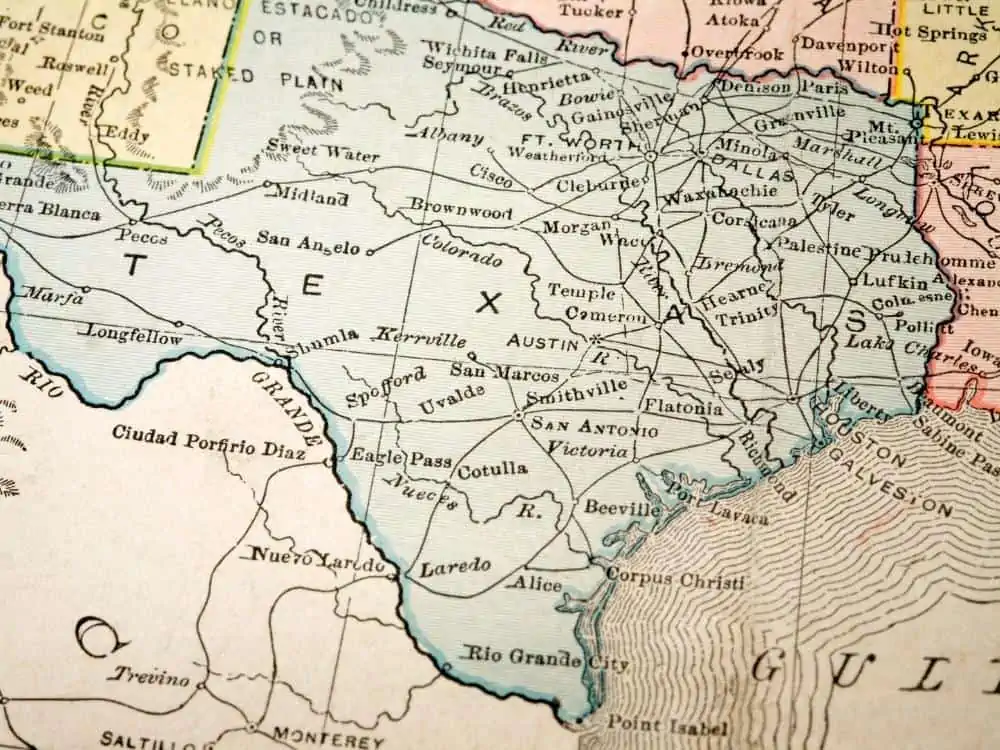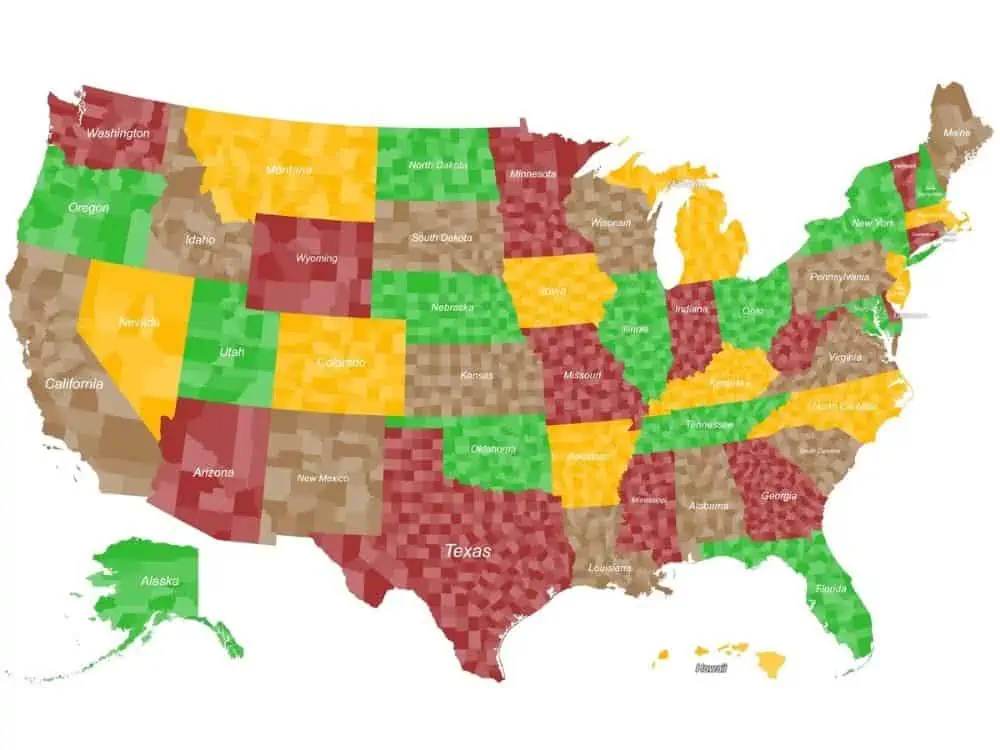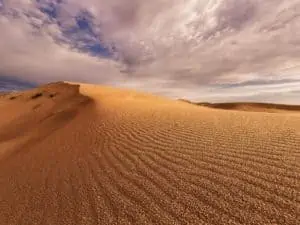Share the post "Big Sky, Big State: Geography that Makes Texas Huge"
The state of Texas has a reputation for big things that it’s commonly known that “everything’s bigger in Texas.” Just as common is this million-dollar question: Why is Texas so big? Stick around to find out how Texas became one of the largest states in the union.
Texas’ size is due to its previous iterations as a part of Mexico and then as an independent nation. Over the years, the borders of Texas changed and evolved to form the Lone Star State it is today.
Size isn’t the only impressive thing about Texas. The state holds the ninth-largest economy in the world. Texas also state has a fascinating history to go with its massive size.

How Did Texas Form Its Borders?
Several factors went into the official formation of Texas’ borders. Believe it or not, the state was previously a territory encompassing a large portion of the West. A land mass of this size was impossible to govern effectively, and eventually, other states and territories broke away. Below are a few reasons why Texas is so big:
- Texas began as part of Mexico.
- Texas was an independent nation before joining the union.
- The shape of Texas is the result of treaties and geography.
- The Texas territory was too large to govern.
- Texas gained land in the Mexican-American War.
You might find it hard to believe, but Texas was once much larger than it is today! The evolution of Texas’ borders took place over nearly two centuries. Each of the factors listed above contributes to the size and shape of Texas. Keep reading to learn how the Lone Star State came to be.
Texas as Another Nation
The state of Texas has a unique history. Unlike the Northern states, Texas was once a part of their Southern neighbor, Mexico. Mexico laid claim to large swaths of the current United States, including Texas. In 1836 Texas declared itself independent from Mexico, which resulted in a liberated land mass covering 393,093 square miles.
The Republic of Texas was an independent nation for a decade. During that decade, Mexico refused to acknowledge Texas’ sovereignty. Texas functioned well as a country, but attacks from Mexico drained the new nation’s resources. In 1835 Texas agreed on annexation into the United States.
Texas as a New State
The United States was eager to welcome Texas and its massive territory into the union. Unfortunately, problems quickly arose. Issues between slave and non-slave states forced Texas to give up a portion of its land.
Another problem became apparent thanks to Texas’ massive size. The state was challenging to govern, so Texas was further split into four new states from its territory.

Is Texas the Largest State?
While huge, Texas is not the largest state in the United States. Alaska is the only other state with a larger land mass than Texas. However, Alaska is much less densely populated. Check out the table below to compare the four largest states in the United States.
| Size | Population | |
| Alaska | 665,400 square miles | 736,990 |
| Texas | 268,597 square miles | 28,640,000 |
| California | 163,696 square miles | 39,350,000 |
| Montana | 147,040 square miles | 1,062,000 |
Texas Is the Second Biggest State
Based on the table above, Texas ranks second in size. Alaska, the largest state in the United States, is almost three times the size of Texas. Alaska has a much lower population than Texas, thanks to its harsh winters and dense wilderness.
Texas Compared To California
Texas may have more land than California, but California has a higher population. California is home to Las Angeles county. Around ¼ of California’s total population lives in this county alone. Compare this to Texas’ largest county, Harris. Harris County holds only 4.6 million people.
Texas and Montana
Montana is like Texas’ less populated Northern cousin. Both states have bustling agriculture industries. Western, or “cowboy” aesthetic, is common in Texas and Montana. If a Texan is visiting Montana, or vice versa, they’ll likely feel right at home.
Texas Is Larger Than Several Countries
For people outside of the United States, it may be difficult to imagine the size of Texas. Here are a few countries that are smaller than the Lone Star State:
- France
- Spain
- Japan
- Ukraine
- New Zealand
Texas Compared to European Nations
You didn’t read our list wrong. Texas is larger than most European countries. It is so vast that you could fit the Netherlands, Slovenia, Switzerland, Austria, Belgium, Czech Republic, Slovakia, Macedonia, Luxembourg, and Hungary inside the Lone Star State and still have some room left.
Texas Gross Domestic Product (GDP) Compared to Other Countries
Everything is bigger in Texas, including the economy.
Texas earned a GDP, which measures the size and strength of an economy, of $1.9 trillion in 2021. Texas roughly earns a GDP of $2 trillion yearly and relies on oil and gas production. Based on GDP, Texas has the ninth-largest economy in the world. That means Texas has a higher GDP than Brazil, with a GDP of $1.8 trillion, and Canada, with a GDP of $1.7 trillion.
Why Is Texas So Big FAQs
How Many States Can Fit in Texas?
15 of the smallest states can fit in Texas: Connecticut, Delaware, Hawaii, Indiana, Kentucky, Maine, Maryland, Massachusetts, New Hampshire, New Jersey, Rhode Island, South Carolina, Vermont, Virginia, and West Virginia.
Is Texas the Wealthiest State?
Texas is the second most wealthy state in the United States. California has a higher GDP than Texas, which is about $3 trillion.
Can Texas Become Its Own Country?
Technically, Texas can not become its own country. The Supreme Court ruled in the past that Texas could not leave the United States of its own accord. The ruling details Texas could become an independent country only if the federal government allows it.
Why Is Texas Famous?
Texas is famous for more than its size. The culture in Texas is rich and influential around the world. Texas is known for country music, BBQ, and wide-open blue skies.
References:
- https://history.state.gov/milestones/1830-1860/texas-annexation
- https://www.census.gov/geographies/reference-files/2010/geo/state-area.html
- https://www.newgeography.com/content/005313-which-countries-would-fit-inside-texas
- https://worldpopulationreview.com/countries/countries-by-gdp
Share the post "Big Sky, Big State: Geography that Makes Texas Huge"
Christian Linden is a seasoned writer and contributor at Texas View, specializing in topics that resonate with the Texan community. With over a decade of experience in journalism, Christian brings a wealth of knowledge in local politics, culture, and lifestyle. He holds a Bachelor's degree in Communications from the University of Texas. When he's not writing, Christian enjoys spending weekends traveling across Texas with his family, exploring everything from bustling cities to serene landscapes.











